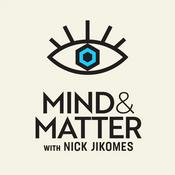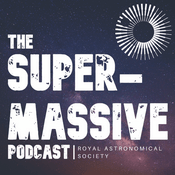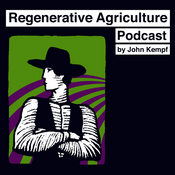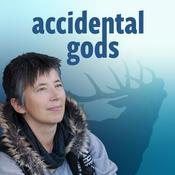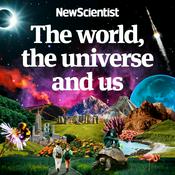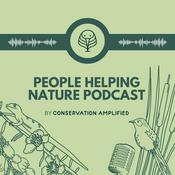58 episodes
- Evolution is often misunderstood as a process limited to biology and genes. In this in-depth conversation, evolutionary ecologist Mark Vellend challenges that narrow view and presents a powerful idea: evolution is a universal principle that governs all complex systems.
In this episode of Reason with Science, we explore how evolution applies not only to living organisms, but also to languages, technologies, cultures, institutions, scientific theories, economics, and artificial intelligence. Drawing on his book Everything Evolves: Why Evolution Explains More Than We Think (From Proteins to Politics), Mark Vellend explains why evolutionary theory deserves recognition as a general science of change, alongside physics.
We discuss:-
•What makes a system evolutionary in the most fundamental sense
• Why Darwinism shaped — and narrowed — our understanding of evolution
• How languages evolve through everyday use and variation
• Why technologies advance through trial, error, and selection
• How cultural norms, ideas, and institutions evolve over time
• The role of randomness, contingency, and selection beyond biology
• Evolutionary thinking in AI, economics, and complex systems
• Tipping points, feedback loops, and irreversible change in ecosystems and societies
This episode is essential viewing for scientists, students, educators, philosophers, and anyone curious about how the world changes — from cells to civilizations.
📘 Book discussed: Everything Evolves by Mark Vellend
🎙️ Podcast: Reason with Science
Guests info
Website : https://mvellend.weebly.com/
Linked in : https://www.linkedin.com/pulse/mark-vellend-everything-evolves-princeton-university-press-is5xc
Episode links:
Website: https://reasonwithscience.com/why-evolution-explains-more-than-we-think
Youtube: https://www.youtube.com/watch?v=yYqQOPph6Qo
Spotify: https://open.spotify.com/episode/6CQdIDnDABUPMCkgoy4gCL?si=U6zufCa_RMqckOQijL4n1A
Apple podcast: https://podcasts.apple.com/us/podcast/why-evolution-explains-more-than-we-think/id1641776894?i=1000741038261
YouTube music: https://music.youtube.com/watch?v=yYqQOPph6Qo&si=gGOJsq0EzY7rldSH
Follow Reason with Science:
Website: https://www.reasonwithscience.com/
Youtube: https://www.youtube.com/@ReasonwithScience
Spotify: https://open.spotify.com/show/5qFLGsPWjL4GAGidmF2nKh
Apple podcast: https://podcasts.apple.com/us/podcast/reason-with-science/id1641776894
YouTube music: https://music.youtube.com/playlist?list=PLila1Jm-QEwKu4xXtNpYFAsSDmPR9mlZB&si=5ehXeZhZ-z181G5b
Timestamps:
00:00:13 — Opening & episode premise: evolution beyond biology00:01:05 — What makes something an evolving system?00:01:46 — Welcome to Mark Vellend00:02:05 — Mark’s research: ecology, climate change, and evolution00:03:17 — Evolution as a universal process00:05:13 — Why evolution goes beyond DNA and genes00:06:45 — Language as an evolving system00:07:45 — Technology, trial-and-error, and innovation00:09:01 — Darwinism and the Modern Synthesis00:11:01 — How biology narrowed the meaning of evolution00:13:03 — The “Second Science”: generalized evolutionary theory00:14:34 — Why direct gene analogies (memes) fail00:17:49 — Modeling evolution without DNA00:20:49 — Selection beyond biology00:51:39 — Tipping points and irreversible change
#evolution #evolutionexplained #trendingvideo #podcast #biology #culturalevolution #languageevolution #sciencepodcasts #reasonwithscience #philosophyofscience #science #evolutiontheory #sciencetalks #youtubevideo #viralvideo How sleep shapes the developing Brain with Mark Blumberg I Infant sleep neuroscience I Podcast
29/11/2025 | 1h 23 mins.How sleep shapes the developing Brain with Mark Blumberg This conversation is with Mark Blumberg, a neuroscientist at the University of Iowa whose work has fundamentally reshaped how we understand infant sleep, movement, and early brain development. Mark’s research reveals that sleep is not a passive state, but an active, self-organizing process essential for building the brain’s earliest sensory and motor circuits.We begin by asking a basic yet surprisingly difficult question: What is sleep, really? Mark explains why defining sleep across development and across species is far more complex than it seems, and why the brain during sleep—especially during REM sleep—is often more active than during wakefulness.Together, we explore why infants spend so much of their early life in REM sleep, how sleep unfolds in distinct stages, and why the tiny, jerky movements known as sleep twitches are not meaningless byproducts of dreams, but powerful developmental signals that help wire the brain and body. We discuss how these movements contribute to building internal models of the body, how sleep supports plasticity and learning, and what happens when these processes are disrupted early in life.Finally, we turn to broader questions about development, neurodiversity, and the limits of genetic explanations. Mark argues for the importance of studying typical development in order to understand developmental disorders, and reflects on what infant sleep can teach us about plasticity, embodiment, and the foundations of human cognition.
Guests info
Website: https://blumberg.lab.uiowa.edu/
X: https://x.com/canadiancharity
Episode links:
Website: https://reasonwithscience.com/how-sleep-shapes-the-developing-brain-with-mark-blumberg
Youtube: https://www.youtube.com/watch?v=YNDcpIq2B98
Spotify: https://open.spotify.com/episode/4ASTAAKKlokphbOc2TJxCi?si=a44044dd89554571
Apple podcast:
YouTube music: https://music.youtube.com/watch?v=YNDcpIq2B98&si=Alxad9KU-RtJn78S
Follow Reason with Science:
Website: https://www.reasonwithscience.com/
Youtube: https://www.youtube.com/@ReasonwithScience
Spotify: https://open.spotify.com/show/5qFLGsPWjL4GAGidmF2nKh
Apple podcast: https://podcasts.apple.com/us/podcast/reason-with-science/id1641776894
YouTube music: https://music.youtube.com/playlist?list=PLila1Jm-QEwKu4xXtNpYFAsSDmPR9mlZB&si=5ehXeZhZ-z181G5b
Timestamps:
00:00:00 – Why sleep is one of the greatest unsolved problems in neuroscience
00:01:22 – What is sleep? Scientific challenges in defining sleep
00:04:05 – Is sleep a single state or a collection of components?
00:06:40 – Why sleep is not a passive state: brain activity during REM
00:08:37 – The major stages of sleep: REM vs non-REM
00:11:10 – Why dreaming is not the core function of REM sleep
00:12:22 – How scientists study sleep in humans and animals
00:15:10 – Sleep deprivation, stress, and experimental limits
00:19:48 – Why babies sleep so much more than adults
00:24:10 – The science of twitching during infant sleep
00:30:05 – How twitches help build the brain’s internal body maps
00:36:01 – Does twitching continue into adulthood?
00:43:28 – Learning during sleep vs learning during wake
00:50:04 – Sleep, memory, and real-world policy implications
01:21:47 – What infant sleep reveals about development and the future of
research #reasonwithscience #science #health #lifescience #podcast #sciencepodcasts #trending #trendingvideo #viralvideoThe Metabolic Truth: Rethinking Calories and Energy with Herman Pontzer | Lifestyle | Health | Food
18/10/2025 | 1h 16 mins.This conversation is with Herman Pontzer, an evolutionary anthropologist and professor at Duke University. Herman is best known for his groundbreaking work on human metabolism and energetics, which challenges long-held assumptions about how our bodies burn and manage energy. His field research with hunter-gatherer and subsistence-farming populations—including the Hadza of Tanzania, the Daasanach of Kenya, and the Tsimane’ of Bolivia—has redefined what we know about the relationship between activity, diet, and health.We begin by exploring the deceptively simple question: Why do some people burn more calories than others? Herman explains how the body’s total energy expenditure is remarkably constrained, meaning that even when we exercise more, our bodies often compensate by reducing energy spent elsewhere. This insight challenges the familiar “calories in, calories out” model and reframes how we understand diet, obesity, and modern sedentary lifestyles.Together, we discuss how evolution has shaped the human metabolic system—from the daily life of foragers walking 19,000 steps a day to the physiology of those in industrialized societies. We examine how metabolism interacts with the immune system, reproduction, and brain function, and why understanding these trade-offs is key to improving public health.Herman also shares insights from his books Burn and Adaptable, connecting metabolic research to broader questions about longevity, diet quality, and the future of medicine. Finally, we consider how modern tools—from doubly labeled water to GLP-1 drugs—fit into the long story of how humans manage energy in a changing world.
Guests info:
Website: https://sites.duke.edu/pontzerlab/
X: https://x.com/HermanPontzer
Episode links:
Website: https://reasonwithscience.com/the-metabolic-truth-rethinking-calories-and-energy-with-herman-pontzer
Youtube: https://youtu.be/07qrQN91Iow
Spotify: https://open.spotify.com/episode/0uN2PJNfEmHckUcdvpg9BJ?si=wZQ4g-ckRnCDNgT71ZwXMg
Apple podcast: https://podcasts.apple.com/us/podcast/the-metabolic-truth-rethinking-calories-and-energy/id1641776894?i=1000732444106
YouTube music: https://music.youtube.com/watch?v=07qrQN91Iow&si=Ho8HOtfA5f-Hzzxf
Follow Reason with Science:
Website: https://www.reasonwithscience.com/
Youtube: https://www.youtube.com/@ReasonwithScience
Spotify: https://open.spotify.com/show/5qFLGsPWjL4GAGidmF2nKh
Apple podcast: https://podcasts.apple.com/us/podcast/reason-with-science/id1641776894
YouTube music: https://music.youtube.com/playlist?list=PLila1Jm-QEwKu4xXtNpYFAsSDmPR9mlZB&si=5ehXeZhZ-z181G5b
Timestamps:
00:00:00 — What is metabolism, really?00:01:20 — Who is Herman Pontzer?00:03:10 — Measuring energy in real life00:06:45 — Lessons from the Hadza and Daasanach00:09:30 — The Constrained Energy Expenditure model00:12:15 — Why exercise alone rarely changes body weight00:15:50 — Diet versus activity: the hierarchy of control00:19:10 — Internal trade-offs: the body’s energy budget00:22:35 — Metabolism in global context00:26:20 — Metabolism across the human lifespan00:29:55 — Overtraining, stress, and energy limits00:33:40 — Modern lifestyles and metabolic mismatch00:37:25 — GLP-1 drugs and the new metabolic frontier00:41:10 — Energy, health, and longevity00:45:00 — Evolution’s signature in our metabolism00:48:15 — How culture shapes our energy habits00:52:00 — Metabolism and reproductive health00:56:30 — The science of appetite and satiety01:00:45 — Metabolic research and public health policy01:05:10 — Final reflections on what it means to live energetically#reasonwithscience #science #healthPredicting future of the Planet with J. Doyne Farmer I Reason with Science | Complexity Economics
14/10/2025 | 1h 10 mins.Can economics help us create a sustainable future? Our guest is Doyne Farmer, Director of the Complexity Economics Programme at Oxford University. Trained as a physicist, he’s spent his career studying chaos, complex systems, and prediction, and now applies those ideas to economics, sustainability, and climate change. In this episode, we’ll talk about why traditional economic models often fail, how complexity economics gives us new tools to understand markets, and what agent-based models and heterogeneity can teach us about the real economy. We’ll look at chaos, business cycles, and equilibrium, and draw surprising parallels between biology, supply chains, and innovation.
Guest info:
Website: https://www.doynefarmer.com/
Bluesky: https://bsky.app/profile/doynefarmer.bsky.social
Episode links:
Website: https://reasonwithscience.com/predicting-future-of-the-planet-with-j-doyne-farmer
Youtube: https://youtu.be/i7T-1m7s2rY
Spotify: https://open.spotify.com/episode/0Mmqc9hETV1yrgxgvv8rHk?si=MxqQzImoR2W0k6W7AvM9pg
Apple podcast: https://podcasts.apple.com/us/podcast/predicting-future-of-the-planet-with-j-doyne-farmer/id1641776894?i=1000731754638
YouTube music: https://music.youtube.com/watch?v=i7T-1m7s2rY&si=OANPQABq3CgX6znI
Follow Reason with Science:
Website: https://www.reasonwithscience.com/
Youtube: https://www.youtube.com/@ReasonwithScience
Spotify: https://open.spotify.com/show/5qFLGsPWjL4GAGidmF2nKh
Apple podcast: https://podcasts.apple.com/us/podcast/reason-with-science/id1641776894
YouTube music: https://music.youtube.com/playlist?list=PLila1Jm-QEwKu4xXtNpYFAsSDmPR9mlZB&si=5ehXeZhZ-z181G5bIs evolution predictable? with Simon Conway Morris | Reason with Science | Emergence | Convergence
09/8/2025 | 1h 47 mins.Is evolution predictable? The guest for this podcast is with Simon Conway Morris, Professor of Evolutionary Palaeobiology at the University of Cambridge. Famous for his work on the Cambrian explosion and the concept of evolutionary convergence, Conway Morris has written influential books including Life’s Solution: Inevitable Humans in a Lonely Universe, The Runes of Evolution, and From Extraterrestrials to Animal Minds. In this conversation, we talk about why convergence — the independent evolution of similar traits across unrelated species — offers evidence for deep constraints on the evolution of life. We’ll discuss major evolutionary transitions such as the origin of eukaryotes, sudden explosions of complexity, and the narrow “design space” within which evolution operates. We’ll examine whether traits like intelligence and consciousness are inevitable, why extinction often leads to familiar replacements, and how evolution’s predictability might extend to technology, culture, and even artificial intelligence.As Conway Morris provocatively asks: “If we replayed the tape of life, would we still end up with eyes, wings, minds—and perhaps even something like us?” This episode explores how the physical, chemical, and biological constraints that underpin convergence shape the living world and why, despite its complexity, evolution may be far more predictable than we imagine.
Guest info:Website: https://www.esc.cam.ac.uk/directory/simon-conway-morris
Episode links:
Website: https://reasonwithscience.com/is-evolution-predictable-with-simon-conway-morris
Youtube: https://youtu.be/mYpFJbJsWYA
Spotify: https://open.spotify.com/episode/7cr8LN9qfsVz40ykFSjC3O?si=bae3fa740cbb4e77
Apple podcast: https://podcasts.apple.com/us/podcast/is-evolution-predictable-with-simon-conway-morris/id1641776894?i=1000721290043
YouTube music: https://music.youtube.com/watch?v=mYpFJbJsWYA&si=7RgntDEFRkqAh9hS
Follow Reason with Science:
Website: https://www.reasonwithscience.com/
Youtube: https://www.youtube.com/@ReasonwithScience
Spotify: https://open.spotify.com/show/5qFLGsPWjL4GAGidmF2nKh
Apple podcast: https://podcasts.apple.com/us/podcast/reason-with-science/id1641776894
YouTube music: https://music.youtube.com/playlist?list=PLila1Jm-QEwKu4xXtNpYFAsSDmPR9mlZB&si=5ehXeZhZ-z181G5b
Timestamps:
00:00:00 – Introduction
00:02:00 – Starting point: evolution’s predictability
00:06:44 – Predictability of evolution & extraterrestrial comparisons
00:10:56 – Deep homology and universal molecular pathways
00:16:30 – Randomness vs probabilities in evolution
00:19:41 – Major evolutionary transitions
00:27:47 – Convergent evolution as a predictive framework
00:42:45 – Laboratory evolution experiments
00:49:57 – Human uniqueness vs other primates
01:02:46 – Dyson spheres & the Fermi paradox
01:06:09 – Human peculiarity and consciousness
01:14:02 – Limits of understanding consciousness
01:27:20 – Challenges in improving science funding
01:38:59 – Mavericks and unpredictability of great ideas
01:42:01 – Theology and spirituality in society
#reasonwithscience #podcast #biology
More Science podcasts
Trending Science podcasts
About Reason with Science
Welcome to "Reason with Science", the podcast that explores the intersection of reason and science in our everyday lives. Billions of years of evolution led to a species which is asking questions about its own existence. This quest of humans is not possible without science. As we navigate an increasingly complex world, it's more important than ever to approach issues with a clear and evidence-based understanding. In this podcast, we'll dive into the latest research, explore fascinating topics, and interview experts in their respective fields to help us make sense of the world around us.
Podcast websiteListen to Reason with Science, The Rest Is Science and many other podcasts from around the world with the radio.net app
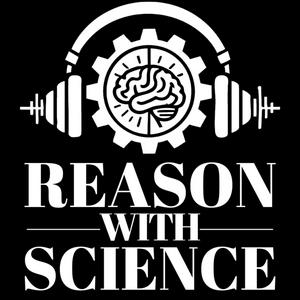
Get the free radio.net app
- Stations and podcasts to bookmark
- Stream via Wi-Fi or Bluetooth
- Supports Carplay & Android Auto
- Many other app features
Get the free radio.net app
- Stations and podcasts to bookmark
- Stream via Wi-Fi or Bluetooth
- Supports Carplay & Android Auto
- Many other app features


Reason with Science
Scan code,
download the app,
start listening.
download the app,
start listening.
















